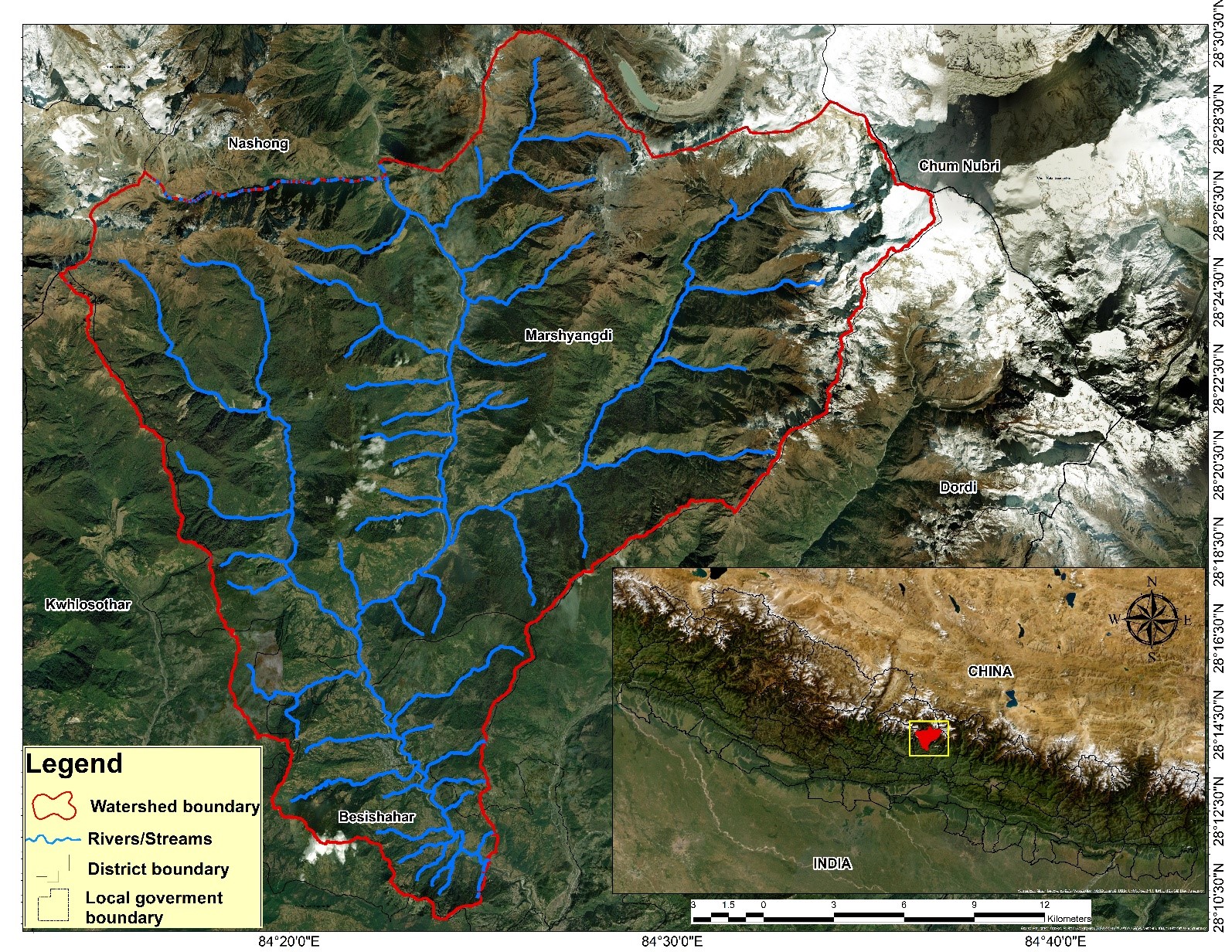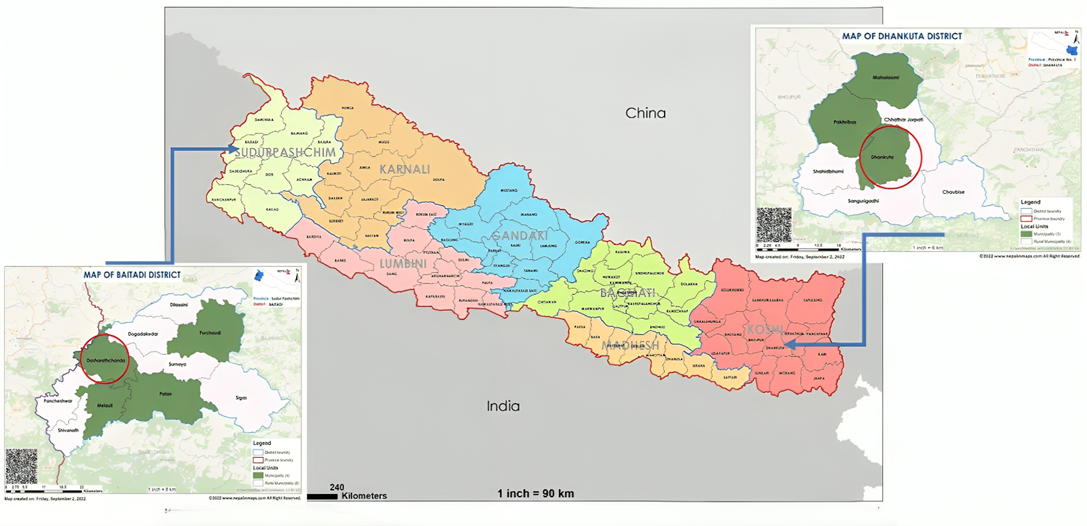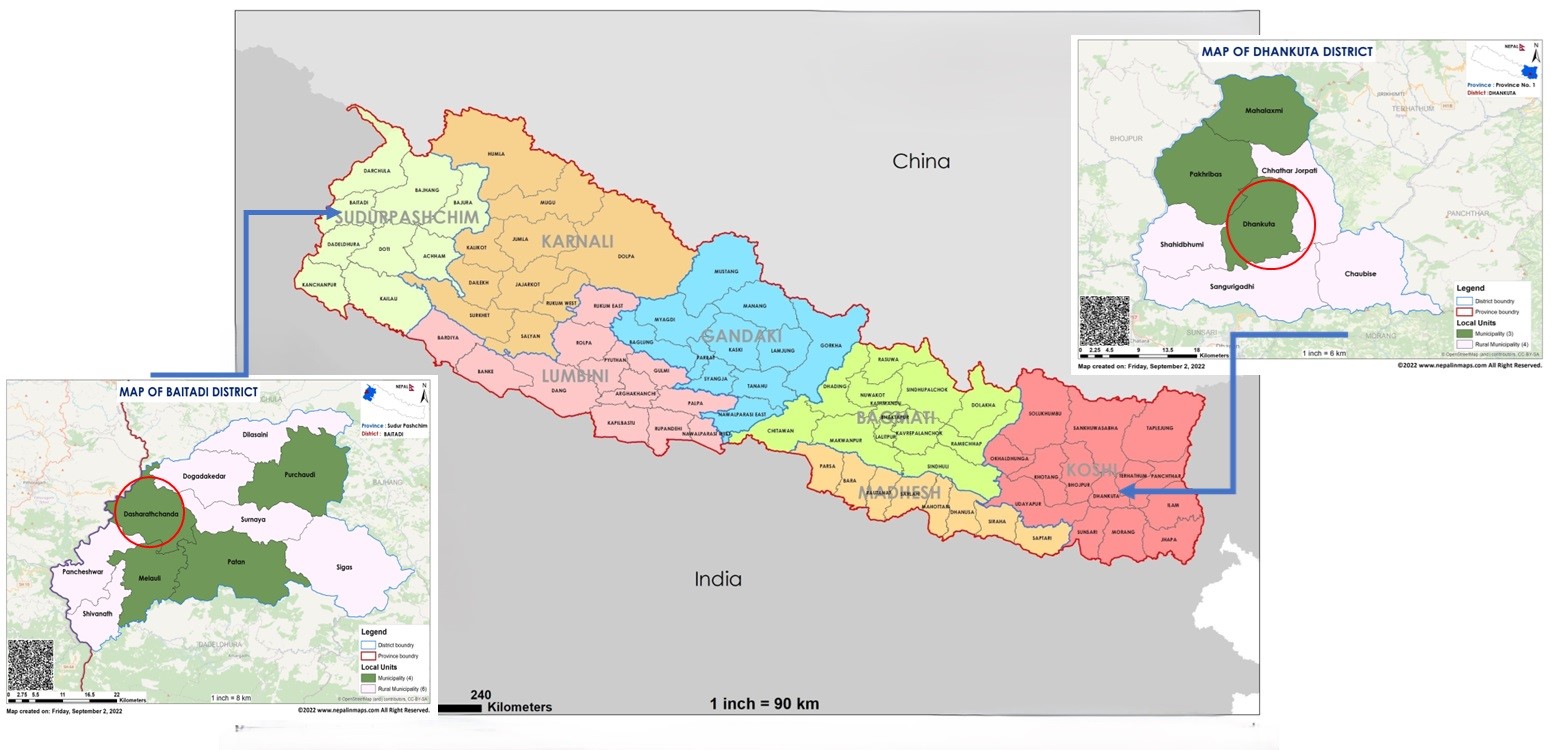Found 3 results
Open Access
Article
03 June 2025Ecosystem Service Importance, Contributions, and Trends: Perspectives from Farmers in the Mountains of Nepal
Understanding farmers’ perceptions of local ecosystem services is crucial for developing effective ecosystem management strategies and policy interventions to improve the overall welfare of residents. Although there is widespread recognition of the linkages between ecosystem services and human well-being, empirical studies examining farmers’ perceptions and contributions to local ecosystem services, particularly at the micro level in mountainous regions, remain limited. To address these knowledge gaps, we conducted an empirical study employing focus group discussions (n = 6), key informant interviews (n = 12), and household surveys (n = 370) in Mid-Marsyangdi watershed, Lamjung, Nepal. The study revealed that farmers perceive high dependency on regulating followed by provisioning, supporting, and cultural ecosystem services such as freshwater, nutrient cycling, water regulation and purification, timber production, livestock fodder, and natural hazard regulation. Their contributions are notably high in managing freshwater, nutrient cycling, and timber production. Farmers’ practices like forest conservation, agroforestry, inter-cropping, terracing, terrace improvement, multi-year cropping, and organic composting enhance ecosystem services. A significant discrepancy exists between perceived importance and actual contribution, particularly in water regulation, purification, and wild edible food, highlighting areas needing greater attention. The study showed a significant difference (p < 0.001) between perceived importance and contribution across all ecosystem services, with perceived importance consistently higher. Further, a study showed the influence of socio-demographic variables on the farmers’ perception. These findings can inform more effective policy-making for farmer welfare, mountain development, and environmental management.

Open Access
Article
10 September 2024Payment or Incentive: Public Perception on Payment for Ecosystem Services at the Time of Climate Change in Nepal
Understanding community preferences and perceptions of ecosystem services is needed to generate local-level financing through Payment for Ecosystem Services. Local-level financing is crucial for both ecosystem management and also helpful in climate change adaptation actions. This research focuses on community perceptions of payment for ecosystem schemes and their preferences to generate local-level financing. The study was carried out in Dhankuta and Dasarath Chand municipalities, representing Koshi and Sudur Paschim provinces of Nepal. We applied social science research methods using focus group discussions, key informant interviews, and community surveys. The study indicates that community-perceived payment for ecosystem service schemes can be instrumental in generating local financing, and their preference is more towards in-kind or project-based payment mechanisms. While climate change is largely impacting ecosystems and community livelihoods, project-based payment mechanisms could be more effective than cash payments. However, this needs a strong institutional mechanism within the municipal government where such in-kind or project-based support could be mobilized through a multisectoral approach.

Open Access
Article
29 August 2024Incentive for Ecosystem Services: Governance and Policy Coherence in Nepal
This research highlights the governance of landscape and policy coherence to ensure a sustainable supply of ecosystem services through incentives for ecosystem schemes at the municipal level in Nepal. The study was carried out in Dhankuta and Dasarath Chand municipalities representing Nepal’s Koshi and Sudur Paschim provinces. Six aggregate governance indicators adopted by the World Bank Group were assessed through interviews with primary stakeholders of selected landscapes in two municipalities, followed by Key Informant Interviews. The study indicates that implementation of the Incentive for Ecosystem service scheme is feasible, creating multi-stakeholder institutions at the local level. However, there are several governance challenges to ensure its success. In particular, incentives for ecosystem schemes must be part of local government planning, where multisectoral coordination and collaboration are essential. While municipal authorities have constitutional jurisdictions to initiate such schemes, they lack the human resources to understand ecosystem management for a sustainable supply of ecosystem services. Therefore, landscape governance is essential to make incentive schemes successful and ensure transparency and equitable benefits among ecosystem service providers.
